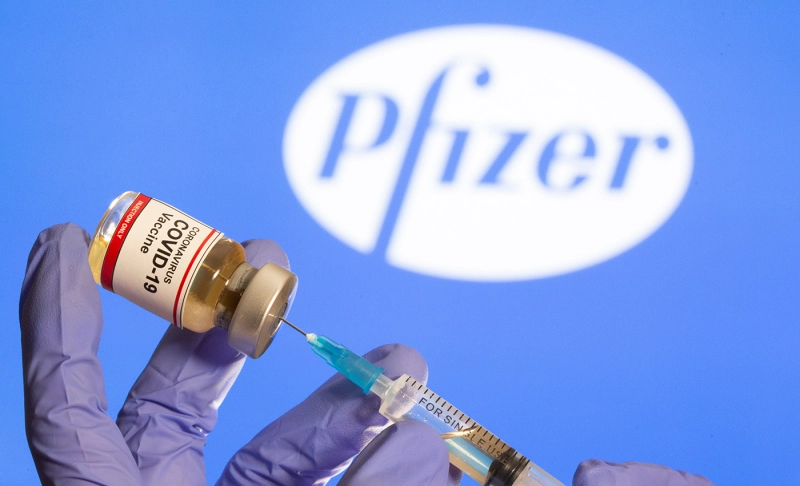By: Gayathri Loka
July 27 2022

There are no long-term effects on male fertility after receiving a Pfizer COVID-19 vaccine. A low motile count might be a minor short-term effect.
Context:
Unsubstantiated claims about COVID-19 vaccines have been afloat especially on social media ever since the vaccines were developed. A recent Facebook post shared a clipping of an opinion article from the far-right publication Epoch Times regarding effects on sperm count after receiving a Pfizer COVID-19 vaccine. The article's headline read, "Pfizer Vaccine Impairs Sperm Count- Conspiracy Theorists Were Right." The Facebook post description read, "Unvaxxed sperm will be worth more than gold soon boys. All you other Golden Bollocks out there. Hold the line…”
In fact:
One Rav Arora penned the Epoch Times article cited in the post. Arora is a young writer and according to his Twitter bio he has written previously for the ‘New York Post’ and ‘The Globe and Mail’. He cited a study by the American Society of Andrology in his article about semen concentration and motility after a person is vaccinated against COVID-19. It appears that Arora did not take into account the complete findings of the study for his opinion piece.
Published on June 17, 2022, the study observed 216 samples from men before and after they took the Pfizer vaccine. In each sample, the researchers investigated factors such as semen volume, sperm concentration, sperm motility, and total motile count. Two samples were taken before the vaccination, and three post-vaccination samples were taken in time frames - 15 to 45 days, 75–125 days, and 145 days after the vaccination date. Initially, the study observed a low motile count three months post-vaccination; however, it was seen as a minor and rare short-term effect. "While on first look, these results may seem concerning, from a clinical perspective, they confirm previous reports regarding vaccines' overall safety and reliability despite minor short-term side effects. Long-term prognosis remains good," the study said.
The U.S. Centers for Disease Control and Prevention (CDC) reported on July 14, 2022, that there is no evidence to prove that COVID-19 vaccines cause infertility in men or women. The CDC cited a study by The Journal of the American Medical Association (JAMA) from June 2021 which said that men who received the Pfizer vaccine "found no significant changes in these sperm characteristics after vaccination."
In December 2021, Forbes cited a study by a Belgium team that observed the sperm quality of a person after they received a COVID-19 vaccine. According to the study, the quality of the sperm might be sub-optimal after the vaccination, and the estimated recovery time was three months. Follow-up studies were being conducted to ascertain any permanent damage.
There is so far no medical evidence to support the claims that COVID-19 vaccines have adverse permanent effect on fertility, but many experts have raised alarm over reduced fertility if one gets the SARS-CoV-2 virus. In a report published on February 8, 2022, the National Institutes of Health said, “So far, studies have not found associations between COVID-19 vaccination and fertility. However, there is evidence that SARS-CoV-2 infection may temporarily reduce fertility.”
The Epoch Time article is an opinion piece by a writer and cannot be considered credible medical information. Studies after studies have exposed misinformation about COVID-19 vaccine. Since the COVID-19 outbreak, Logically has debunked several claims regarding medical and vaccine misinformation.
The verdict:
The study cited in the shared newspaper column stated that there could be a minor low motile count after vaccination. However, the study further said that it is not a long-term effect and that it is safe to take the Pfizer COVID-19 vaccine. Hence, we have marked this claim false.